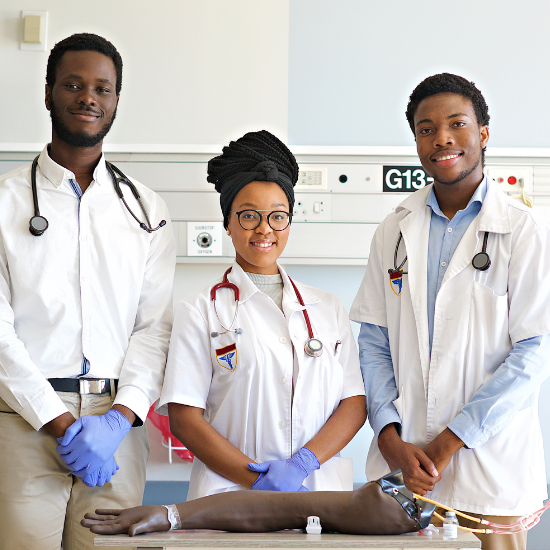The smart Trick of Northeast Medical Institute - New Haven Campus Phlebotomy Course & Cna Class That Nobody is Discussing
The smart Trick of Northeast Medical Institute - New Haven Campus Phlebotomy Course & Cna Class That Nobody is Discussing
Blog Article
The Main Principles Of Northeast Medical Institute - New Haven Campus Phlebotomy Course & Cna Class
Table of ContentsNortheast Medical Institute - New Haven Campus Phlebotomy Course & Cna Class - An OverviewThe Best Guide To Northeast Medical Institute - New Haven Campus Phlebotomy Course & Cna ClassNortheast Medical Institute - New Haven Campus Phlebotomy Course & Cna Class Things To Know Before You Get This6 Easy Facts About Northeast Medical Institute - New Haven Campus Phlebotomy Course & Cna Class Shown9 Simple Techniques For Northeast Medical Institute - New Haven Campus Phlebotomy Course & Cna ClassEverything about Northeast Medical Institute - New Haven Campus Phlebotomy Course & Cna Class
The use of such devices should be accompanied by other infection prevention and control practices, and training in their usage. Not all safety and security tools are relevant to phlebotomy. Prior to selecting a safety-engineered device, customers need to extensively explore readily available tools to identify their proper use, compatibility with existing phlebotomy practices, and efficiency in shielding staff and patients (12, 33).For settings with low sources, cost is a motoring element in purchase of safety-engineered gadgets. Where safety-engineered devices are not available, skilled use of a needle and syringe is appropriate.
In the blood-sampling space for an outpatient division or center, give a comfortable reclining couch with an arm remainder.
Getting The Northeast Medical Institute - New Haven Campus Phlebotomy Course & Cna Class To Work
Ensure that the indicators for blood tasting are plainly defined, either in a created procedure or in documented directions (e.g. in a laboratory kind). At all times, adhere to the techniques for infection avoidance and control provided in Table 2.2. Infection avoidance and control methods. Accumulate all the equipment required for the procedure and area it within safe and simple reach on a tray or trolley, making certain that all the items are plainly visible.
Introduce yourself to the individual, and ask the client to specify their complete name. Examine that the laboratory form matches the individual's identity (i.e. match the patient's details with the research laboratory kind, to ensure accurate identification).
Make the individual comfy in a supine placement (preferably). Place a clean paper or towel under the individual's arm. Review the test to be carried out (see Annex F) and obtain verbal authorization. The person has a right to reject a test at any moment prior to the blood sampling, so it is crucial to ensure that the patient has understood the procedure.
Not known Incorrect Statements About Northeast Medical Institute - New Haven Campus Phlebotomy Course & Cna Class
Extend the person's arm and examine the antecubital fossa or lower arm. Find a capillary of an excellent size that shows up, straight and clear. The layout in Section 2.3, shows usual placements of the vessels, but lots of variants are feasible. The average cubital capillary exists between muscle mass and is generally the most simple to penetrate.
DO NOT put the needle where veins are diverting, since this boosts the opportunity of a haematoma. The blood vessel needs to be noticeable without applying the tourniquet. Situating the capillary will certainly aid in identifying the right dimension of needle. Apply the tourniquet regarding 45 finger widths above the venepuncture site and re-examine the vein.
Haemolysis, contamination and existence of intravenous liquid and medication can all alter the results (39. Nursing staff and physicians may access central venous lines for specimens following procedures. Samplings from central lines carry a risk of contamination or incorrect laboratory examination outcomes. It serves, but not optimal, to injure specimens when very first presenting an in-dwelling venous tool, prior to linking the cannula to the intravenous liquids.
The smart Trick of Northeast Medical Institute - New Haven Campus Phlebotomy Course & Cna Class That Nobody is Talking About
Permit the location to dry. Failure to enable enough call time raises the threat of contamination. DO NOT touch the cleaned up website; particularly, DO NOT position a finger over the blood vessel to direct the shaft of the exposed needle. It the site is touched, repeat the sanitation. Carry out venepuncture as adheres to.
Ask the individual to develop a fist so the blood vessels are more prominent. Go into the blood vessel promptly at a 30 degree angle or much less, and remain to introduce the needle along the vein at the most convenient angle of access - Phlebotomy Courses. When Read Full Article adequate blood has been collected, launch the tourniquet BEFORE withdrawing the needle
The Northeast Medical Institute - New Haven Campus Phlebotomy Course & Cna Class Ideas
Withdraw the needle carefully and use gentle pressure to the site with a tidy gauze or dry cotton-wool sphere. Ask the client to hold the gauze or cotton wool in location, with the arm prolonged and elevated. Ask the person NOT to flex the arm, since doing so triggers a haematoma.

A Biased View of Northeast Medical Institute - New Haven Campus Phlebotomy Course & Cna Class
Do not press the syringe plunger since added stress increases the danger of haemolysis. Where possible, maintain televisions in a shelf and relocate the shelf in the direction of you. Infuse downwards right into the appropriate coloured stopper. DO NOT get rid of the stopper due to the fact that it will release the vacuum cleaner. If the example tube does not have a rubber stopper, infuse extremely slowly into the tube as reducing the pressure and speed utilized to move the sampling decreases the threat of haemolysis.

Report this page